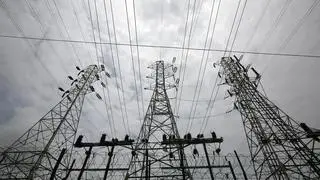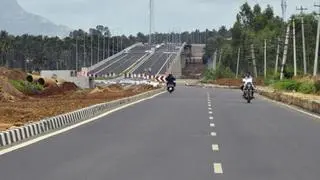Fourteen countries have been engaged in negotiations in Singapore over the third round of the Indo-Pacific Economic Framework (IPEF) Agreement. Led by the US, negotiations are probably in secret mode; only sketchy details are available.
In regular trade agreements, all members prepare and exchange the negotiating texts. In IPEF, the US alone has chosen the negotiating subjects and prepared the texts. Member countries are negotiating around these. IPEF members are Australia, Brunei, Fiji, India, Indonesia, Japan, Malaysia, New Zealand, the Philippines, Singapore, South Korea, Thailand, the US and Vietnam.
Hundreds of specific issues are negotiated under four subjects: trade, supply chains, clean economy and fair economy. There is possibility of overlap with the same subject being negotiated in more than one group. A core group must work across the subjects.
We highlight a few areas critical for developing countries. Stakes are enormous, and negotiations are expected to conclude this year.
Trade
The focus is on agreeing to WTO Plus standards and practices the US follows in digital trade, labour, environment, agriculture, etc.
Digital trade: Do not agree to free cross-border data flows. Ownership of national data is crucial for developing public services. As business shift to virtual space, most future revenue that should accrue to governments will go to BigTech. Most data is generated in China and India and China has secured its data. India should never agree to binding commitments as it will lock in the future. Much the same way, the Information Technology Agreement (ITA) 1 agreement locked us out of electronic hardware manufacturing.
We should retain flexibility to share data with Indian firms and not BigTech to promote indigenous enterprise. We may also not agree to no tax on services offered online. Else, how governments will earn revenue as most services are shifting online. Do not adopt the US standards on artificial intelligence. Drawn by a few tech giants, these may have biases built in. It may not suit local jurisdictions.
Labour standards: IPEF may contain provisions from the United States-Mexico-Canada Agreement (USMCA). Sample. An auto component fitted in the car exported to the US must be made by Mexican workers earning at least $16 per hour in wages. This is a problem as the typical wage for such workers in Mexico is $8 per hour. Most Mexican exports to the US will disqualify. Demanding labour standards might mean a ban on labour-intensive exports. At IPEF, do not reiterate the ILO conventions agreed. Commitments at ILO are the best endeavour, but reiterating those under an FTA (free trade agreement) becomes binding and actionable.
Environment standards: With a per capita income of $50,000, the EU can price a tonne of carbon dioxide at $107. If India charges this price, the electricity price will multiply four times, followed by a massive overall price rise and fall in exports.
Transitioning to a low-carbon economy will be economically sustainable only if it creates jobs. Hence, while India is committed to sustainability and green energy goals, it cannot afford to have the same stringent labour and environmental standards as the advanced countries.
Refrain from reiterating in IPEF the commitments taken at COP26. If done so, for example, India may be prohibited from making more power from coal, even if needed on an emergency basis.
Agriculture: Do not allow the import of GM seeds and foods in the pretence of food security. Doing this may result in a surge in subsidised agriculture commodity imports. We must settle this issue at the domestic level first before taking international obligations. Large seed monopolies want farmers to buy seeds from them every time if once bought.
Do not agree to restrict farmers’ rights to reproduce or exchange seeds. Do not surrender the right to limit trade or provide subsidies to farmers for fertilisers, electricity, and irrigation. Learn from the US, which uses heavy subsidies on agriculture — now doing the same for critical industrial sectors.
Transparency and good regulatory practices: Should India seek inputs before increasing tariffs or imposing trade restrictions or affect domestic policy changes? No, as this would legitimise big businesses to have a direct say in how we should make our domestic laws.
Inclusivity, gender: A text about the participation of women and MSMEs may be a disguise for obtaining concessions in government procurement or services. Read between the lines.
Supply chains
Can the IPEF restrict members from trading critical materials or technology to China? Challenging task for ASEAN as most of their trade is with China.
Do not agree to not using the export restriction clause. No country supplies products to others when it is on fire? We must make a domestic policy first.
Clean economy
Do not agree to a non-derogation clause. This would prevent a government from relaxing an existing domestic rule for a project of national importance.
Do not agree to minimum standards on clean energy products/technologies for domestic markets. This would prevent producers from selling in their domestic markets and relying on imports.
Do not agree to stop preferential treatment to domestic suppliers in government procurement of goods.
Fair economy
India is already implementing many of the obligations related to anti-corruption. Taking new obligations would make domestic actions legally enforceable and open to international scrutiny. Commitments related to the effective administration of tax policy might curtail the ability to raise tax revenue. These must be studied in detail.
Most standards under discussion are already being applied in the US and other OECD economies. Members are expected to agree to these with little ado. India must make domestic rules/standards fast or risk being pushed in IPEF and in FTA negotiations with the EU, the UK, etc.
The writer is founder, Global Trade Research Initiative








Comments
Comments have to be in English, and in full sentences. They cannot be abusive or personal. Please abide by our community guidelines for posting your comments.
We have migrated to a new commenting platform. If you are already a registered user of TheHindu Businessline and logged in, you may continue to engage with our articles. If you do not have an account please register and login to post comments. Users can access their older comments by logging into their accounts on Vuukle.